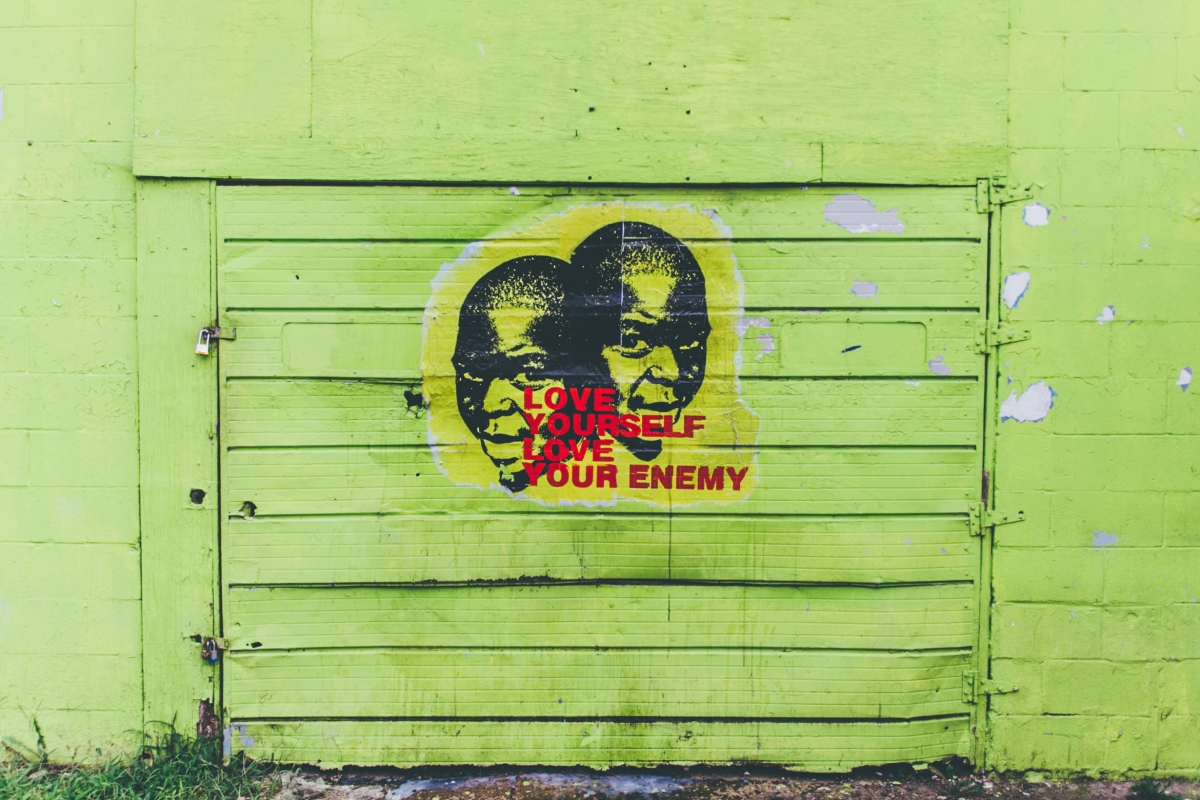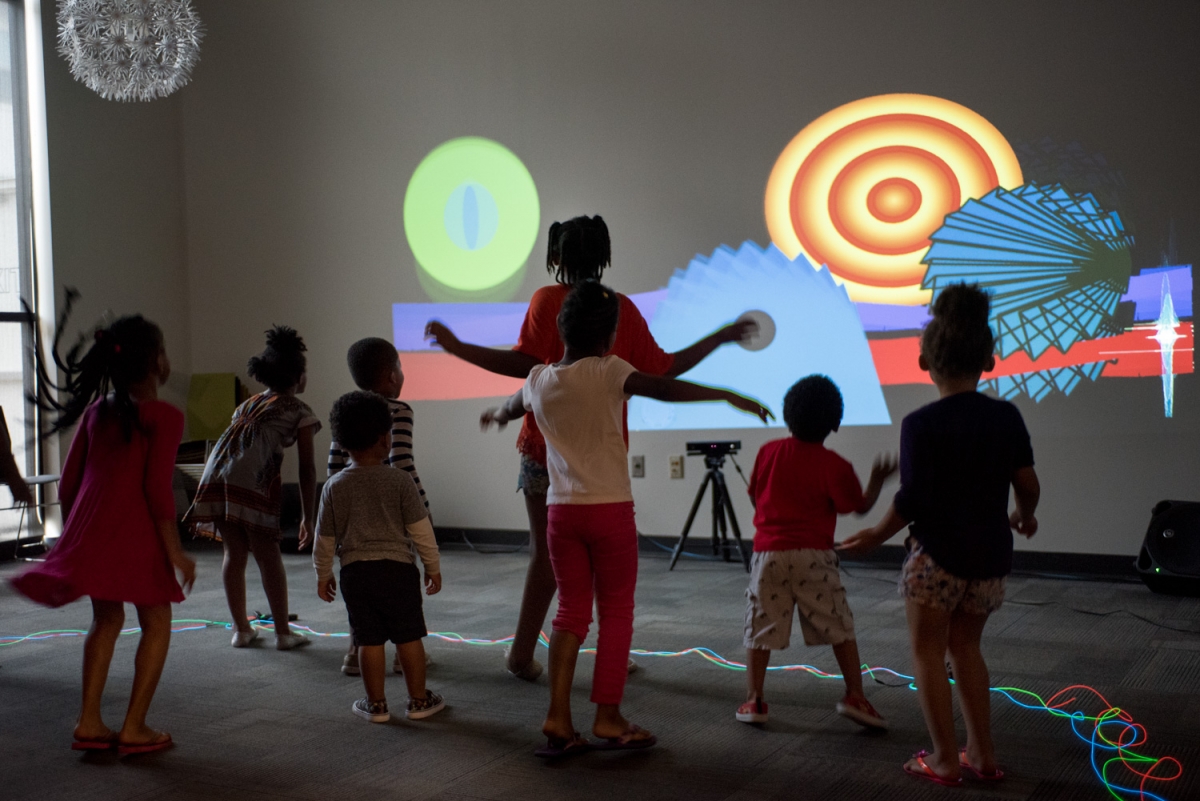Learning to Listen: The Transformative Power of Collaboration and Nashville’s Learning Lab Artist Training Program
Posted by Aug 16, 2018

Ms. Van Maravalli
This post is part of our Public Art Network 2018 Year in Review blog salon. The Year in Review presentation is available for purchase in our bookstore.
At the Metro Nashville Arts Commission, we like to think of ourselves as a type of strange municipal glue. Meaning, we create points of connection between things that previously existed independent of one another in order to make something new. This also means we spend a lot of time explaining that artists have a unique skillset that can be an asset in any field, not just the arts. When we start these conversations with non-arts organizations we hope to collaborate with, our message is often met with confused faces. Could an artist do more than beautify a physical space? How could an artist work within the juvenile court system or at a public health facility? We ask these questions because we believe public art can be a community investment tool for neighborhood transformation, creative workforce development, and equitable practices throughout our city.

With that belief in mind, Metro Arts set out to create a program that demonstrates how local arts agencies can create a new model for placemaking and public art infrastructure that advances artists’ professional development and strengthens the fabric of neighborhoods through collaboration. Thanks to funding support from the National Endowment for the Arts, and in collaboration with our partners at the Center for Performance and Civic Practice (CPCP) who assisted in the development and design of the program, we were able to realize our vision and launch the first Learning Lab Artist Training Program in 2016.
Long before actually forming the program, we could see that our city was facing some new and complex challenges. While these challenges certainly posed a threat to the vitality of Nashville’s creative workforce (and still do), they could also work to artists’ advantage. Nashville’s recent rapid growth meant more opportunities to involve artists in planning processes, and more opportunities for private commissions. However, Nashville’s lack of professional development opportunities for artists, especially visual artists, meant few people had the skills and experience necessary to work in this capacity. The development boom was also causing certain communities and neighborhoods to destabilize. The ever-increasing real estate prices left people with few housing options and made it nearly impossible to support a household with a creative practice alone. However, through the creation of Metro Arts’ Learning Lab Program we were able to do two things: provide local artists with the training and experience necessary to apply for larger projects and commissions, and directly invest in art-led creative interventions that stabilize and strengthen neighborhoods.
We discovered that many of the artists who participated in the lab felt that the convening of artists in itself was the most valuable part of their learning lab experience. Since we now know the importance of community building, we will continue to create opportunities for local artists to connect with one another in formal and informal settings, which we believe will strengthen the creative ecosystem in Nashville.
The first Learning Lab class included 25 local artists who we trained through a series of lectures, individual assessment exercises, group activities, and one-on-one coaching sessions. Program curriculum focused on authentic community partnerships through deep listening and co-design skills, practical knowledge needed to enter into partnerships, and project management basics. The program not only deepened local artists’ knowledge around community-based work; it also expanded the reach of available resources for artists as well as communities. After the conclusion of the training phase, artists were invited to apply for project funding. Eleven artists within the first cohort were funded to work with community partners on projects covering a wide range of community concerns such as affordable housing and displacement, restorative justice, and issues important to Nashville’s immigrant communities. (Watch the Metro Arts Learning Lab: Community Artist Training Program video for more about artist projects.)

You learn unexpected lessons anytime you are trying to create something new, and that was just as true for Metro Arts as it was for the artists we funded. We discovered that many of the artists who participated in the lab felt that the convening of artists in itself was the most valuable part of their Learning Lab experience. Since we now know the importance of community building, we will continue to create opportunities for local artists to connect with one another in formal and informal settings, which we believe will strengthen the creative ecosystem in Nashville. We have also come to realize that even if a program is free, participation may still cause a financial hardship for some artists. If an artist is the primary caregiver for another person or has a child and does not have the financial means to pay for a sitter, they likely will not apply for the program. During the second iteration of Learning Lab in 2018, we began offering an honorarium for those who need it. Providing an honorarium further diversified our applicant pool and increased the number of female artists who applied.
In 2018, we are launching the second round of training and have selected 12 Nashville-based artists to be a part of the Learning Lab cohort. We also had 11 community partners working in strategic areas. These partners included city government agencies as well as nonprofits, who learned alongside the artists to examine and consider civic and social issues in our communities. We saw an opportunity to create a program that would help local artists advance their careers while also training them to be powerful advocates and allies for vulnerable communities. We continue to see the benefits of this work and the ways in which it strengthens our relationship with our local artist community, civic leaders, and our constituents. This work has power, and we hope that other cities can benefit from examining our journey here in Nashville.
2018 PAN Year in Review: More Ways to Learn
Here we are at the end of another Public Art Network Year in Review Blog Salon! It has been a great week of learning about these successful projects.
You can continue to learn more about all 2018 projects in our Online Database; visit the Annual Presentations page to read up on this year’s jurors and watch the presentation; or purchase your own copy of the Year in Review presentation in our online store.
We look forward to continuing the PAN Year in Review. Application information for 2019 is available now on our website.
—Patricia Walsh, Public Art and Civic Design Program Manager, Americans for the Arts





